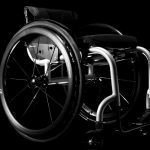There has been widespread anger at train operator Govia Thameslink Railway (GTR). GTR, who operate the Southern, Thameslink, Gatwick Express and Great Northern franchises, has issued what many are calling ‘grossly insulting’ guidance to their staff on how it should deal with disabled passengers.
This advice says that:
- Staff should not attempt to place “persons of reduced mobility (PRM)” on a train “if there is a possibility of delaying the service”
- Any PRM wishing to travel by train to an unstaffed station should be taken to the nearest staffed station to their destination and then “assisted into a taxi”
Government blamed for problems
As a result of this the Equality and Human Rights Commission is considering taking legal action under the Equality act against the Government. This is because they believe that Government policies have caused these guidelines to be issued. Also, the problems caused by GTRs guidance are now being seen at other rail franchises.
Ann Bates, a leading transport access consultant and former rail chair of the Disabled Persons Transport Advisory Committee, blames both the government and GTR for the guidance.
She believes the guidance is a direct result of government policies that force companies to cut staff and run driver-only operated (DOO) trains (that have no second member of staff on board to help disabled passengers on and off trains) as well as running more services with fewer delays.
Attitude across the whole rail industry is bad
Stephen Brookes, the rail sector disability champion, said, “The GTR guidance was appalling, unacceptable and massively discriminatory. But, it is important not to focus only on GTR because the attitude to disability across the industry was appalling and unacceptable, while the use of DOO services was discriminatory.”
He continued, “The regulator, the Office of Rail and Road, needed stronger powers to take a proactive approach to ensuring that rail companies comply with their disabled people’s protection policy (DPPP).”






Recent Comments